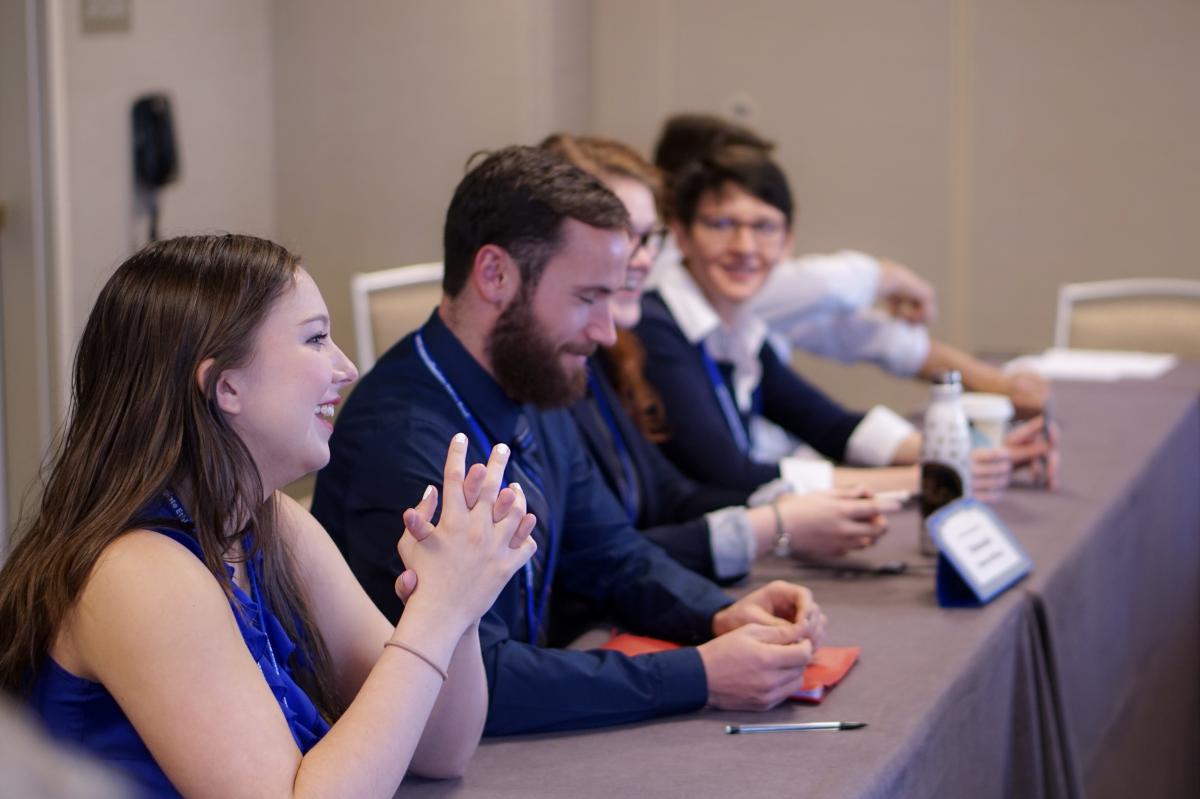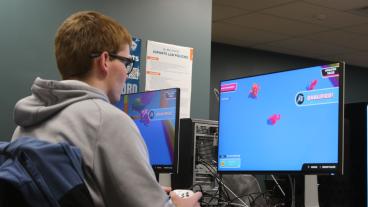Mines was one of 37 teams to compete in the National Intercollegiate Ethics Bowl last weekend, finishing in 13th place after the tiebreaker round.
Prior to the competition, each team was given a set of cases that raise issues in practical and professional ethics.
Questions concern ethical dilemmas in a wide range of arenas, such as the classroom (e.g., cheating or plagiarism), personal relationships (e.g., dating or friendship), professional ethics (e.g., engineering, law, medicine) or social and political ethics (e.g., free speech, gun control, etc.)
The questions raised in the 2017 competition included, “Can a bartender refuse to serve a pregnant woman?” and “Should colleges pay their student athletes?” A full list of the 2017 cases can be viewed here.
 |
Hannah Grover defends a case on behalf of the Mines team. Photo courtesy of Parker Bolstad. |
Teams were given a limited amount of time to confer and then answer the moderator’s questions, after which the opposing team could also respond. A panel of judges then probed the teams for further justifications and evaluated answers based on the intelligibility of their arguments, their focus on ethically relevant considerations and their deliberative thoughtfulness.
The Mines team—Grover, Parker Bolstad, Kirsten Fong, Ian Kramer, Dana Steiner and Azriel Wolffe—was tied for sixth place after the preliminary rounds. A tiebreaker put Mines in 13th.
“The Mines Ethics Bowl Team really surprised people, I think. We're relatively new to Ethics Bowl—this is our third year—and I watched the competition blink when they realized our team is comprised of scientists and engineers,” said Teaching Professor Sandy Woodson, one of the team’s coaches and director of the Ethics Across Campus program at Mines.
Woodson noted that the team completely debunked certain stereotypes about STEM students. “Their communication skills are fantastic, they demonstrated nuanced understanding of nontechnical problems and they were quick on their intellectual feet, responding to questions out of left field,” she said.
Toni Lefton, the team’s co-coach and teaching professor in the Humanities, Arts and Social Sciences Division, is proud of how the team “presented their recommendations with a great deal of empathy for the stakeholders and illustrated how compassion, along with expertise and theoretical knowledge, is what the engineer of 2020 really looks like.”
Grover hopes that more people will have the opportunity to participate in this experience. “The skills it helps you develop are incredibly important, and you get introduced to issues that you may not have ever considered before,” she said. “I have taken away the ability to apply logical ethical reasoning to seemingly impossible problems, and then be able to communicate and discuss that with others.”
Woodson said she plans to incorporate lessons learned from this competition in coaching next year’s team.
Contact:
Agata Bogucka, Communications Manager, College of Earth Resource Sciences & Engineering | 303-384-2657 | abogucka@mines.edu
Mark Ramirez, Managing Editor, Communications and Marketing | 303-273-3088 | ramirez@mines.edu



